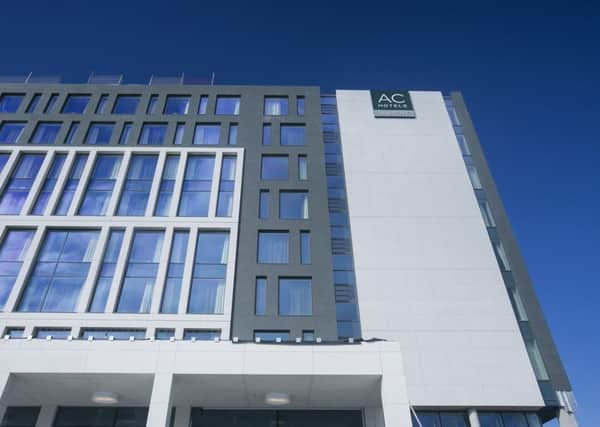Hotel rooms grow by over 90% but staffing '˜now a major issue'


The warning comes in a new report from the NI Hotels Federation which says the 8,500 bed barrier will be broken this month with the opening of the AC by Marriott.
That significant growth will continue throughout the rest of the year until the number of rooms will pass 9,500 by the year’s end.
Advertisement
Hide AdAdvertisement
Hide AdHowever, the growth brings with it demand for around 1,500 extra staff highlighted in the report as “the number one concern,” and exacerbated by concerns around Brexit and the fact that 23% of staff in the hospitality sector are non-nationals.
Their position regarding employment in a post-Brexit UK is not clear says the report noting that recruitment from outside the UK could also present a challenge once Brexit has been completed.
“2017 was a strong year with consolidation in occupancy, growth in room rates and good trading conditions,” said NIHF chief executive Janice Gault.
“We had a number of new openings and expansions over the course of 2017 and this expansion is set to ramp up in 2018 with two new properties already opened in the first quarter.”
Advertisement
Hide AdAdvertisement
Hide AdShe said there had been a reasonable start to the year so far with reports suggesting that Easter “held up well,” though no official figures are available yet.
“However, there have been challenges and one of the greatest challenges for the sector has been the issue of staffing and skills,” she said.
“Recruitment of new staff and finding staff with suitable skills to take up supervisory and management roles has been difficult over the last eighteen months.
New openings, competition from other sectors and a reduction in numbers of workers from within the EU have exacerbated an already difficult situation.”
Advertisement
Hide AdAdvertisement
Hide AdTo that end, Ms Gault said the NIHF was working with a number of partners on tackign the situation, recognising that the industry as a whole faced issues with image and must “adapt to the needs of an evolving society”.
“Employers are working with staff on providing flexible hours. Many roles within the sector offer internationally recognised qualifications that allow people to travel, open their own businesses and have long and well-paid career paths. We just need to actively promote these aspects.”
Despite the challenges, she said it was also important to note that hotel growth around the province brought benefits to the wider hospitality industry.
“Increased guest numbers will bring more visitors to attractions and increase the number of meals and drinks consumed in local bars and restaurants allowing these businesses to grow and prosper.
“More visitors and increased room sales are a really good news story for Northern Ireland.”